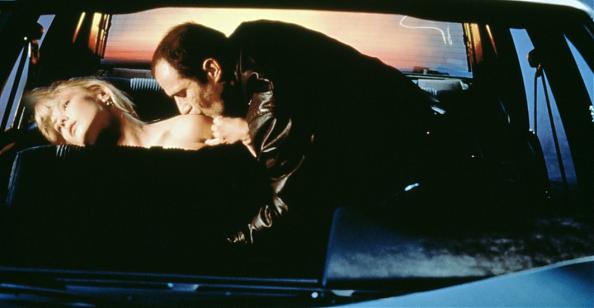
In Crash the director shows three characters who have in common a perverse fascination with car accidents. They want to watch, reconstruct and take part in them. Obsessive yearning for contact with the physicality of the machine and its lethal nature becomes an uncontrollable obsession. The eye of the camera records human bodies devoid of any emotions, which are only kindled by the contact with the machine; its engine, upholstery and fluids are for the characters more sensual than living partners. The machine interferes in the intimacy of human body. In the sexual trance which the characters fall into, Cronenberg perceives the syndrome of internal emptiness, defining the human of the era of advanced technology and global urbanization. Their life is determined by risk – balancing on the border between life and death, beauty and destruction, man and machine. In 1996 David Cronenberg received the Special Jury Prize at the Cannes Film Festival for Crash. The film’s release was surrounded by an aura of moral scandal and met with extremely divergent reactions of the audience and critics.
DAVID CRONENBERG is a Canadian director and scriptwriter, one of the most controversial artists in contemporary cinema. He began his career in 1960s, making short films representing the genre of science-fiction and body-horror, which told about human fear of bodily transformation. In his films, psychology is closely connected with physicality: characters often undergo mutations, transformations and their reality is blurred – what seems a real world turns in a fluid way into a dream or hallucination. The director lists William S. Burroughs as one of his inspirations and it was the adaptation of Burroughs’ novel Naked lunch (1991), considered impossible to be adapted into a film, that went down in the history of cinema as one of the most bold and iconoclastic, but at the same time most outstanding, of Cronenberg’s films.